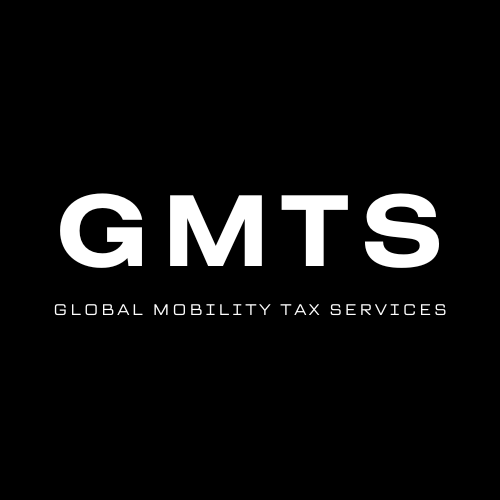
What is the Italy impatriate tax break (in Italian “Lavoratori Impatriati”)
According to Italian authorities (for an official courtesy translation of the new rules please click here), the Italy impatriates tax break can be summarised as follows:
It is a temporary subsidized taxation regime, recognized to workers who transfer their residence to Italy.
..in the tax period in which the residence is transferred and in the following 4, income from Italian-sourced employment (or similar) or self-employment contributes only to a limited extent to the total income subject to taxation.
More specifically, only 50% (previously 30%) of the total amount earned in Italy is subject to Italian taxation [the extra 90% exemption for those moving to Southern Italy has now been eliminated. However, the exemption does increase to 60% for workers relocating with a dependent child under 18 or who have/adopt a child during the benefit period].
The new regime also introduces a maximum annual eligible income of €600,000 for the tax benefit (previously, there was no such a cap).
The special impatriates scheme can now no longer be extended for a further period of 5 years under certain conditions (the only exception is for those who registered as local residents in 2024 and purchased a main residence in Italy by December 31, 2023; they may extend the benefit for an additional three years).
The impatriates regime is also available to sportspeople, as defined Italian Law No. 91/1981, who move to Italy with a flat exemption of 50% for 5 years (though beneficiaries must pay a 0.5% contribution on the income subject to the tax break).
Eligibility requirements for the Italy tax scheme for impatriates
There are three main conditions to fulfil:
- not to be resident in Italy for the 3 (previously 2) years prior to the move / repatriation; and
- carrying our work activities predominantly in Italy; and
- the worker needs to reside in Italy for at least 5 years
In addition to these main requirements, up to 31 December 2023, there was also a requirement for a direct connection between the transfer and the beginning of a work activity in Italy.
However, recent clarifications from the Italian tax authorities also indicate that there is no longer a requirement for an immediate connection between the transfer of tax residency and the start of employment, allowing for more flexibility in how and when remote workers begin their Italian-based work.
The benefit applies to employment income and self-employment from arts and professional activities, but no longer to business income for sole proprietors.
Workers who moved their registered residence to Italy by December 31, 2023, can still access the old, more generous regime.
The tax relief is available to both Italians and foreigners (more specifically EU citizens or citizens of a country with which Italy has entered into a Double Tax Treaty or a Common Reporting Standards agreement).
For non-Italian citizens, there were additional conditions to fulfil such as:
- having a degree or post-degree qualification; OR
- having worked for a continuous period as an employee, self-employed or entrepreneur in the last 24 months outside of Italy
However, these are no longer valid and they have been replaced by the new requirement for high professional qualification or specialization regardless of citizenship.
The Italy tax break for impatriates is available for the following types of income:
- employment
- self-employment
- entrepreneurial from sole proprietorships (from 1 January 2024 the italian impatriate regime is no longer applicable to this category of workers)
The Italian authorities have more recently also clarified that the special scheme for impatriates is also available to individuals on smart working arrangements with their employers.
Applicability period of the impatriate tax relief in Italy
The Italy tax break for impatriates originally applied to workers moving their residency to Italy from the 2019 tax year, provided eligibility requirements were met at that time.
As of January 1, 2024, the regime has changed:
Individuals who became Italian tax resident by December 31, 2023, continue under the old regime, which includes more generous exemptions and the possibility of a five-year extension under certain conditions.
For those who become resident from January 1, 2024, the new regime applies. The benefit is a 50% exemption on eligible income (up to €600,000 per year), increased to 60% if relocating with or having/adopting a minor child during the benefit period. The benefit lasts for five years and is generally not extendable. Only those who registered as residents in 2024 and purchased a home in Italy by December 31, 2023, may qualify for a limited three-year extension.
The previous options for a 90% exemption (for those with at least three minor dependents) and a general five-year extension no longer apply to new arrivals from 2024 onward.
The process involved in claiming the Italy tax break for impatriates
Employees
To benefit from the Italy tax break for impatriates, an employee must submit a self-declaration (Dichiarazione regime impatriati) to their employer, confirming that they meet all the conditions required for the tax relief. This declaration should be supported by relevant documentation, such as proof of non-residence in Italy for the required period, evidence of high professional qualification or specialization, and confirmation of transfer of tax residence to Italy.
Once the employer receives the self-declaration and, if required, supporting documents, they apply the reduced taxable income in the payroll and calculate withholding taxes accordingly from the next available pay run. If, upon later review, it is found that the employee did not meet the eligibility requirements, any tax benefit received must be repaid with interest.
Practical example illustrating how the Italian impatriates tax relief works
Old Regime (for individuals who became Italian tax resident by 31 December 2023):
An individual who transferred their residency to Italy on 1 January 2020 and started working as a self-employed person could claim the impatriate tax relief on both self-employment and employment income (including salary from a start-up company) for five years, with possible extensions and higher exemption rates under certain conditions (such as having dependents or purchasing property).
New Regime (for individuals becoming resident from 1 January 2024):
An individual who transfers their residency to Italy from 1 January 2024 and starts working as an employee or as a self-employed professional (arts or professions) can benefit from a 50% exemption on eligible income (up to €600,000 per year) for five years, provided all new conditions are met—including not having been Italian tax resident for the previous three years and possessing a high professional qualification or specialization. The exemption increases to 60% if the individual relocates with a minor child or has/adopts a child during the benefit period.
Under the new regime, there is no general extension beyond five years. Only those who register as residents in 2024 and purchase a home in Italy by 31 December 2023 (or within the 12 months prior) may qualify for a limited three-year extension. The 90% exemption and the previous rules for extensions based on dependents or property purchase no longer apply to new arrivals from 2024 onward.
Note: Entrepreneurial income from sole proprietorships is no longer eligible for the tax break under the new rules.
FAQ Italy Tax Break For Impatriates
Is it possible to ask the Italian Revenue (Agenzia Delle Entrate) for a preliminary assessment to confirm my eligibility?
The Italian tax authorities generally may provide advance rulings (“interpello”) on non-standard eligibility for the impatriates tax break, as the requirements are considered a matter of fact and the law is clear. Interpelli may only be submitted in cases involving genuine legal uncertainty or complex interpretative issues, not for routine confirmation of eligibility.
Some rulings have also clarified the scope of eligible income, the application to special categories (like researchers and sportspeople), and the treatment of certain employment arrangements.
For example, a recent ruling confirmed that amounts not contributing to taxable IRPEF income (such as certain severance payments, namely TFR) are excluded from the impatriate regime.
However, most published guidance (namely, Risoluzioni or Circolari) and rulings relate to the pre-2024 regime. The new regime (from 2024) is so recent that little jurisprudence or interpretative guidance has yet been published.
Therefore, the responsibility lies with the individual to ensure that all the relevant criteria are met and that they can substantiate their eligibility with appropriate documentation if requested by the authorities. This includes evidence of non-residence in Italy for the required period, proof of high professional qualification or specialization, and documentation of employment or self-employment in Italy.
Does the Italian tax break for impatriates also include an exemption from social security contributions?
No. The exemptions afforded by the Italian tax scheme for impatriates covers only income tax (also known in Italy as IRPEF)
Are there any risk in connection with the special impatriates tax scheme in Italy?
As mentioned in the article, the onus is on the tax payer to self-assess that they are indeed eligible for the reliefs available.
The Italian tax authorities will likely run checks on individuals who claim the exemption once the tax break is claimed.
Therefore, there is a risk that if it turns out the individual claimed the exemption even though technically, they were not entitled to it, not only they would have to pay to the Italian authorities the taxes they claimed an exemption on but also, they will likely incur penalties and interest charges.
As an Italian living and working abroad, is it possible to take advantage of the tax scheme for impatriates even though if I’m not registered with the AIRE?
Before 2024, the simple answer was yes as being in the official Register of Italians Residing Abroad was not a mandatory requirement to be eligible for the Italy tax break for impatriates.
However, as of 2024, registration with the AIRE is generally a mandatory requirement for Italian citizens wishing to access the impatriate tax regime.
The only exception is for those who can prove, with robust documentation, that they were tax resident abroad for the required period (at least three years) in one of countries with which Italy has entered into a Double Tax Treaty.
This exception is strict, and the burden of proof is on the individual. The concession is not available to foreigners; it applies only to Italian citizens, and only if they can demonstrate tax residence abroad under a double tax treaty.
What about the impatriates tax break for foreigners who already lived in Italy before?
Foreign nationals who previously lived in Italy can still be eligible for the impatriate tax break if they have not been tax resident in Italy for the three tax periods preceding their return and if they meet all other eligibility requirements, such as holding a high professional qualification or specialization and performing work mainly in Italy after their return.
Eligibility is determined by actual tax residence status, not just by registration or de-registration with the Anagrafe (Register of the Resident Population). If an individual was still considered tax resident in Italy under Italian law during any of the three years before their return, they will not qualify for the regime, regardless of their Anagrafe status.
Therefore, it is important to evaluate your tax residence position for the three years prior to your move, rather than relying solely on administrative registrations.
Is it possible to still claim the exemption afforded by the Italy impatriates tax break if I change job?
Yes, the Italy tax scheme for impatriates is still available when changing jobs.
What happens if my plans change and I end up being resident in Italy for less than 5 years?
Any entitlement to the Italian impatriates tax break is forfeited and any tax exemptions obtained will need to be paid to the Italian authorities.
In addition, penalties are likely to apply (ranging from 90% to 180% of the taxes not initially paid) for each year in which the tax relief for impatriates was claimed.
Is the Italy impatriates tax scheme also available if the foreign employer does not have an entity in Italy?
Yes, the Italian authorities have confirmed that the impatriates regime does not require your work to be performed for an entity based in Italy. You can benefit from the regime even if your employer is a foreign company with no Italian entity, as long as you transfer your tax residence to Italy, perform your work mainly in Italy, and meet all other eligibility criteria.
Please note: if you continue working for the same foreign employer (or a company in the same group) as before your move, stricter requirements apply regarding the minimum period you must have spent abroad.
I am an Italian expat sent on assignment abroad, is the impatriate tax relief also available to me if I have been outside of Italy for at least 3 years?
Under the new rules effective from January 1, 2024, the required period of tax residence abroad depends on your employment relationship:
If you are returning to Italy to work for a different employer (not the same company or group as before), you must not have been tax resident in Italy for at least the three tax years preceding your return.
If you are returning to work for the same employer or a company in the same group, you must not have been tax resident in Italy for six or seven tax years (six years if you were not previously employed in Italy by the group, seven years if you were)
The previous criteria based on assignment extension or change of role are no longer sufficient. You must also meet all other eligibility requirements, including holding a high professional qualification or specialization and committing to remain tax resident in Italy for at least five years.
If you do not meet the required period of tax residence abroad, you will not be eligible for the impatriate tax relief under the new regime.
I have repatriated to Italy and I’m now working as self-employed, with “regime forfettario”, is the impatriates scheme still available to me?
Unfortunately, the Italian authorities have clarified that the regime forfetario is incompatible with the impatriates tax scheme.
You must choose either the ordinary, progressive rates tax regime or regime forfettario, and switching from forfettario to the ordinary regime does not allow you to retroactively or subsequently access the impatriate scheme for the same period.
Contact us should you require further clarifications on the impatriate tax relief in Italy (Lavoratori Impatriati) and/or have a look at some of the other insights we have published.




